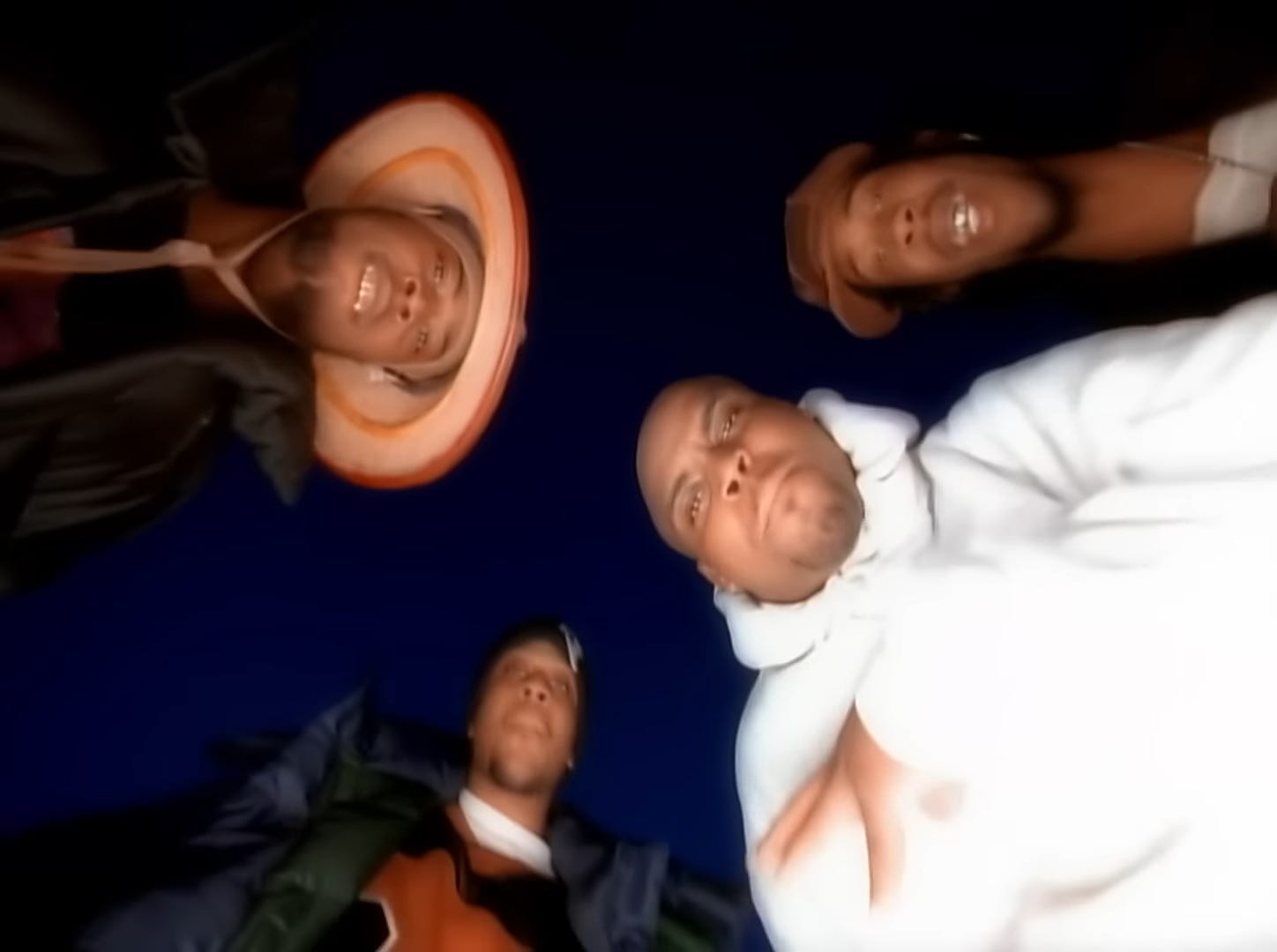Why Goodie Mob’s ‘Soul Food’ Still Feeds the Soul of the South 30 Years Later
The Atlanta group’s 1995 debut album didn’t just define Southern hip-hop—it told the world who we were, where we lived and how we survived.
Every so often, I thank God for making me a southerner. Sure, that comes with a lot of historically terrible and tyrannical things that won’t be discussed in this article, but musically, I’m thankful.
To grow up as a child of the ’80s who came of age with ’90s-era hip-hop, New York was the epicenter of the hip-hop universe. Of course, Los Angeles was right there—for years, Ice Cube was my favorite rapper; even as a 12-year-old, I knew greatness when I heard it. But all the hip-hop video shows and what little hip-hop was played on the radio mostly leaned towards artists from New York. The Geto Boys, 8Ball and MJG and a smattering of other artists, particularly local in Atlanta, gave us some southern flavor. However, most of us, especially in Atlanta and Atlanta-adjacent areas, remember when Outkast hit. It changed everything for me, and I genuinely mean that.
Here were two cats from my neck of the woods with a video in “Player’s Ball” that looked like the streets I was familiar with. The accent that Rico Wade shared with the greater community was one I grew up with; it sounded like home. This article isn’t about Outkast, but in 1994, when “Southernplayalisticcadillackmuzik” hit, let’s just say I felt seen in a way that I didn’t even know mattered. There are a litany of books, essays, analysis and even documentaries about André 3000’s famous declaration at the 1995 Source Awards and what that meant for the South but life in Atlanta and the greater South, to me, was truly reflected in Goodie Mob’s 1995 debut, “Soul Food,” an album that hits even more sharply 30 years later than it did for me as a 15-year-old in 1995.
Goodie Mob—the group composed of Cee-lo, Khujo, Big Gipp and T-Mo—wasn’t intended to be a group the way we know it. According to interviews and podcasts, Khujo and T-Mo were a group called The Lumberjacks (T-Mo even opens up “Soul Food’s” first song “Thought Process” with the line “let me get a chop at this lumber…”), Big Gipp, who was a solo artist at that point, and their much younger member, Cee-lo. That they found a unique and wonderful chemistry is kismet; that they put together an album that truly spoke to the angst, views, perspective and life of a young, Black man in the South, well, that wasn’t nothing but God.





